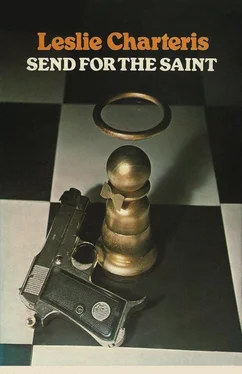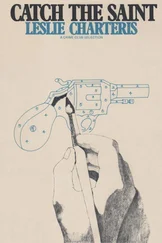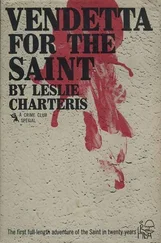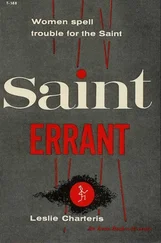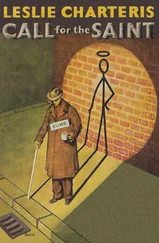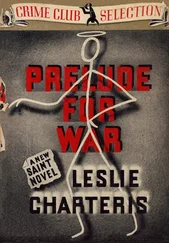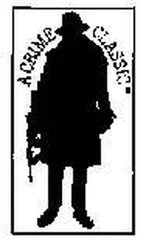Ruth Barnaby met him in the late afternoon at Petersfield, arranged garaging for his car, and drove him the last few miles in her own sporty two-seater.
The Bull at Kyleham was a comfortable inn, and handily placed just under a mile from the wall surrounding Rockham’s fifty-five acre base, which she pointed out to him as they passed it. The publican was a harmless soul whose co-operation had been easily enough ensured by a bit of official, not to say officious, finger-to-the-lips confidentiality. He had been told, in other words, only what he absolutely had to know; which was that for reasons having to do with national security he would kindly look no further for a relief barmaid than the attractive and competent-seeming young woman who was introduced to him as, simply, Ruth. As instructed, he provided her with a room and asked no questions; and in return she ably performed her duties behind the bar. It was as simple as that.
It was, technically, just a few minutes before opening time, so there was no one else in the bar when they came in.
“What can I get you?” she asked.
“A pint of Guinness for a start,” he said. “Just to rinse the dust off the tonsils.”
She went behind the bar and drew it. The Saint took a long and appreciative pull at the brimming tankard, and settled himself on a stool.
“Freedom,” he declared expansively to his audience of one, “is a thing you never truly value till after you’ve been deprived of it. Which I suppose puts it squarely in the same bracket as just about anything else in the world that’s worth having.”
The girl set down a glass she had been vigorously drying — and so brought to an end, for the time being, an entertainment which owed a lot to her natural endowments and also something to the well-fitting sweater that inadequately concealed them.
“Prison seems to have brought out the philosopher in you,” she observed.
The Saint engulfed another vast draught of the rich velvet brew, while noting with approval that the vigorous drying-action and accompanying mammary vibrations had been resumed.
“I suppose,” he opined, “that to anyone who ever did a stretch in Buchenwald, or in an old-fashioned English public school — to paraphrase one of our more eminent literati, Brixton would have seemed like home from home.”
Ruth Barnaby reached down for a well-filled haversack which she had brought in with her, and put it on the counter in front of him.
She said: “Here’s the stuff you asked for.”
Simon picked it up. It was light for its size. He opened it and took out two bulging oilskin bags. In the bottom of the haversack he could see a lightweight nylon rope ladder of the special design he had stipulated.
He peered into one of the oilskin bags, poking around in it with a lean brown hand, and nodded approvingly.
“The other one’s the same?” he inquired.
“Identical. Everything you asked for.”
She dipped into her handbag and brought out a large manilla envelope. Rapidly she pointed to each item of the contents which she drew half-out of it.
“Local maps, aerial photo of Kyleham House Estate, details of guard patrols... and all Bert Nobbins’s reports. All two of them,” she added with a hint of malicious satisfaction.
The Saint looked at his watch and stood up.
“Thanks. I think I’ll take these as my cue to withdraw to your back room,” he said good-humouredly. He finished his pint, and picked up the folder and haversack. “A public bar’s just a bit too public for serious study — and any minute now your regulars are going to be piling through the door in their droves, tongues hanging out. See you later.”
He had often had occasion to dilate satirically upon the parlous state of a nation whose idiotic nanny-like licensing laws frowned on the thirst of its citizens except within prescribed periods of the day. But just now he had more pressing matters to attend to, and he gave them his undivided concentration for the next two hours.
When the girl came through to the back room after that interval, he had already buttoned up his dark raincoat and shouldered the haversack.
“I’m on my way,” he said. “It’ll be dark enough by the time I get to the merry old health farm.”
“Good luck,” she said, almost perfunctorily.
“I’ll try to give you the first news about O-two-hundred hours,” he said. “Be outside the wall, about fifty yards east of the main gate. Okay?”
He picked up the single grip bag that was his luggage, went out by the back door, and melted into the dark.
There was a quarter-moon and a light mist, a blend of visibility and cover that suited the Saint’s immediate purpose very well. It took him less than twenty minutes to reach Kyleham House, and he smiled with a grim mirthless satisfaction as he saw the wall ten feet high, looming up blankly out of the mist.
This was what the weeks of preparation had been all about. Behind that wall, and three hundred yards beyond the electrified inner fence, he would find John Rockham and The Squad — just as Jack Randall must have found them, on the sortie that was to be the last he ever made.
The Saint’s jaw tightened as he swung the grip case in under the shadow of the wall and opened the haversack.
The rope ladder he had ordered was designed for maximum compactness and minimum weight. It was made of the thinnest possible parachute cord that would support a man’s weight; it was no more than six feet long, and had a big U-shaped claw of tempered steel attached to one end. He had to throw the grappling-iron up to hook over the top of the wall, in which he succeeded at the second attempt, and then to scale the ladder was only a matter of moments.
He paused briefly astride the wall, assuring himself that all was clear on the other side, before repositioning the ladder for his descent and eventual return.
The fence was only three yards beyond; he could see it clearly in the subdued moonlight: the solid wooden posts at eight-foot intervals, and stretched between them the thick continuous copper wires running parallel, about nine inches apart — the top one a good seven feet high.
An Olympic high-jumper might have cleared it, with a good run and at some hazard to his marriageability; but it would have been impossible to climb over it or through it without touching the wires and absorbing whatever unpleasant voltage they carried.
The surgical operation which the Saint performed on this shocking obstacle was simple enough in principle, and he could easily have applied it to all the strands in the section of the fence which was his patient. But that would have taken quite a bit longer; and anyway with reasonable care he would be able to manage his subsequent excursions satisfactorily with just the bottom wire neutralised, leaving a safe eighteen-inch height to squirm under. Beside which, there would be less danger of his scalpel work being discovered.
That was one calculated risk.
He had to do his doctoring by the little natural light that happened to be available. This consisted of connecting a heavily insulated length of wire from his haversack to the lowest electrified strand, at the post, leading it across through the thick grass to the next post, and up that post again to re-connect with the same strand. Having thus bridged the distance between the posts — in case an alarm would have been set off if the original circuit had been crudely broken — he was able to excise the bypassed wire, using a special pair of insulated cutters which were included in the equipment he had requisitioned.
As a finishing touch, he fastened a length of string between the fence posts at the same level, to make the gap in the wire less obvious.
He knew that any really close scrutiny would be bound to reveal the substitution, but he just had to bank on the likelihood that a fence more than a mile long wouldn’t regularly get a yard-by-yard inspection.
Читать дальше
